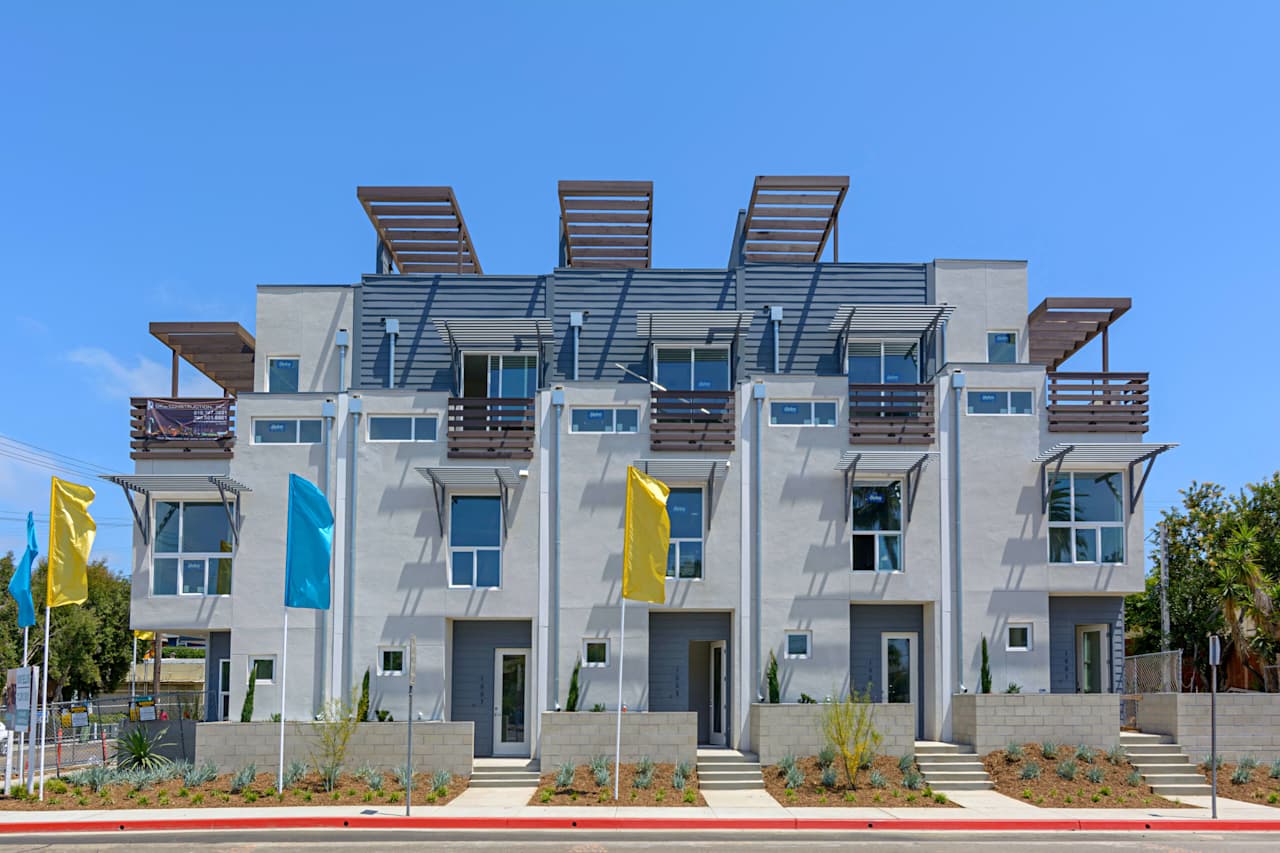Why Housing Prices Aren't Going Down
Real Estate

Real Estate

Why Housing Prices Aren't Going Down: Exploring the Current Real Estate Landscape
Home prices have ticked upwards for the last three months in San Diego. They are still about 5% below their market peak, but at this rate, they will be at or above peak values by the end of summer. This situation defies a lot of logic since interest rates have doubled, which doubles the monthly mortgage payment. When rates first skyrocketed, everyone expected prices to plummet. But that never happened.
Why?
The Macro-Economic Scenario
First, we must acknowledge the unprecedented economic circumstances we are currently witnessing. With the world reeling from the impact of the pandemic, governments worldwide resorted to printing trillions of dollars to combat the crisis. Infusing such a massive amount of money has naturally resulted in inflation. It is a fundamental principle of macroeconomics that increasing the money supply leads to inflation—the policymakers consciously prioritized avoiding a deep economic depression over the risk of inflation. Consequently, we find ourselves in an inflationary environment where the prices of assets, goods, and services have skyrocketed. It was inevitable that this excess money would eventually flow into real estate, driving up real estate values since real estate is an asset that is an excellent hedge against inflation.
Supply and Demand Dynamics
The demand for housing consistently links to employment rates. In areas where the economy is robust, and unemployment rates are low, like San Diego, with its current unemployment rate of 2.7%, the demand for housing remains high. People with jobs seek comfortable living places, and the desire for home ownership persists. Job changes, downsizing, upsizing, and other life factors continue despite interest rate changes, and people want homes that match their current needs. So, demand persists.
Despite the significant increase in mortgage rates from around 3% to 6.5%, buyers have adjusted their expectations and continue to enter the market. The pent-up demand from the months of very few transactions has further contributed to the upward pressure on prices.
Conversely, the supply side of the market is constrained. In San Diego, the inventory of active for-sale homes is less than 50% of what was available two years ago. Fewer people are willing to sell their properties for a few reasons:
1. They have benefited from a substantial increase in value over the past few years. For instance, my house has more than doubled in value since 2018.
2. The cost of borrowing has gone way up, and people want to hold on to their 3% mortgage rates.
3. Rents have continued to increase by +/-8% every year.
Consequently, if someone (like me) wanted to purchase my same home today, the property taxes and mortgage costs would be 2x higher. But I could rent the home and cash flow nicely after paying all property-related expenses (repairs, management fees, insurance, mortgage, property taxes.)
Therefore, many homeowners hold onto their properties and convert them into rentals while purchasing new homes. Or they are just choosing to not move, despite life changes that otherwise would lead them to buy a new home.
This limited supply and high demand ensure that housing prices remain elevated.
Commercial Real Estate - Apartments
The commercial real estate sector dynamics, particularly apartments which is my expertise, follow a similar pattern. Despite the significant increase in mortgage rates for commercial properties, the market has yet to experience the anticipated crash. Values are calculated using a cap rate based on the property’s income, and typically, cap and mortgage rates move in tandem, with a predictable spread between them.
However, the current scenario defies this conventional relationship. Apartment property values have remained stable, primarily due to the availability of abundant capital. Significant equity funds, including the recent record-breaking $50 billion real estate investment fund raised by BlackRock, have substantial sums earmarked for deployment. Investors know that real estate is a hedge against inflation and are willing to accept lower yields to safeguard their assets. Consequently, most of the commercial real estate market has remained as predicted, showcasing the industry’s resilience.
*Office buildings are a completely different part of the commercial real estate market and have been heavily discounted due to an overall decrease in demand.
Conclusion
While concerns about another housing bubble persist, assessing the current economic circumstances and market dynamics is crucial before making predictions. The factors that led to the housing crash of 2007-2009 are not prevalent today. Instead, we are witnessing an inflationary environment resulting from trillion dollars in the global economy. This excess money, with low unemployment rates and limited housing supply, has contributed to the surge in housing prices.
Furthermore, the commercial real estate sector has remained stable despite the increase in mortgage rates. Abundant capital, coupled with real estate, is a hedge against inflation and has sustained the industry.
While it's challenging to predict the future with absolute certainty, the current real estate landscape suggests that housing prices will unlikely decline soon. However, it's essential to closely monitor market trends, government policies, and economic indicators to make informed decisions. Ultimately, whether you're a prospective homebuyer, seller, or investor, understanding the complexities of the housing market and staying informed will help you navigate this ever-evolving landscape.
Disclaimer: The information provided in this blog post is for educational purposes only and should not be considered financial or investment advice. It is essential to consult with a qualified professional before making any investment decisions.
Stay up to date on the latest real estate trends.

Multi-Unit Investment
Savvy multifamily real estate investor's partnership with Folio Real Estate Group’s property management company MV Properties became a game-changer.

Multi-Unit Investment
Are you missing the opportunity to create an expanding real estate portfolio for your legacy and estate planning?

Real Estate Investment
Holding Treasury bonds and federally backed money market accounts is considered risk-free because the US government backs them. The problem, however, is that inflation… Read more

Announcement
Richard and Janet were patient and stuck to their criteria.

Housing Data
In San Diego County, the housing market is always experiencing high demand. Homes are still in the realm of affordable, at least for California, which leads to more ma… Read more

Real Estate
Why Housing Prices Aren't Going Down: Exploring the Current Real Estate

Real Estate
Off-market Townhome Secured for 6% Under Comparable Value

Community
BLCI Board Chair and Folio Principal Keegan McNamara Featured Speaker

Multi-Unit Investment
We understand these changes can be confusing and potentially concerning, but as your local leader in Property Management and Listings Services, we are committed to kee… Read more
You’ve got questions and we can’t wait to answer them.